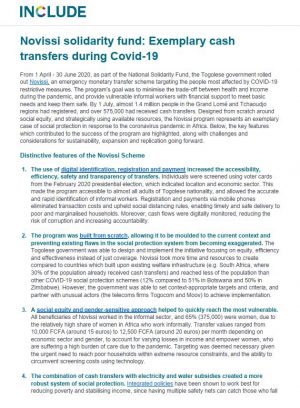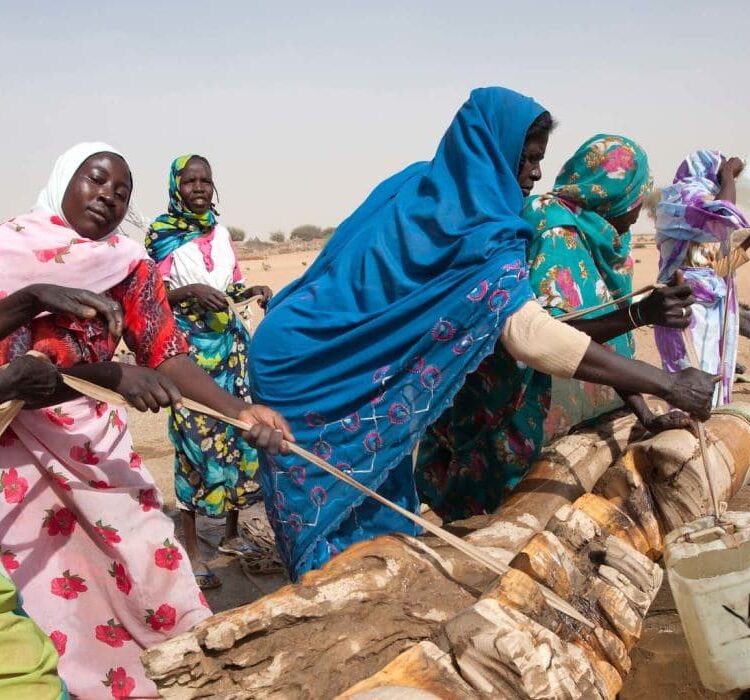
From 1 April – 30 June 2020, as part of the National Solidarity Fund, the Togolese government rolled out Novissi, an emergency monetary transfer scheme targeting the people most affected by COVID-19 measures. The program’s goal was to minimise the trade-off between health and income during the pandemic, and provide vulnerable informal workers with financial support to meet basic needs and keep them safe. By 1 July, almost 1.4 million people in the Grand Lomé and Tchaoudjo regions had registered, and over 575,000 had received cash transfers. Designed from scratch around social equity, and strategically using available resources, the Novissi program represents an exemplary case of social protection in response to the coronavirus pandemic in Africa. Below, the key features which contributed to the success of the program are highlighted, along with challenges and considerations for sustainability, expansion and replication going forward.
